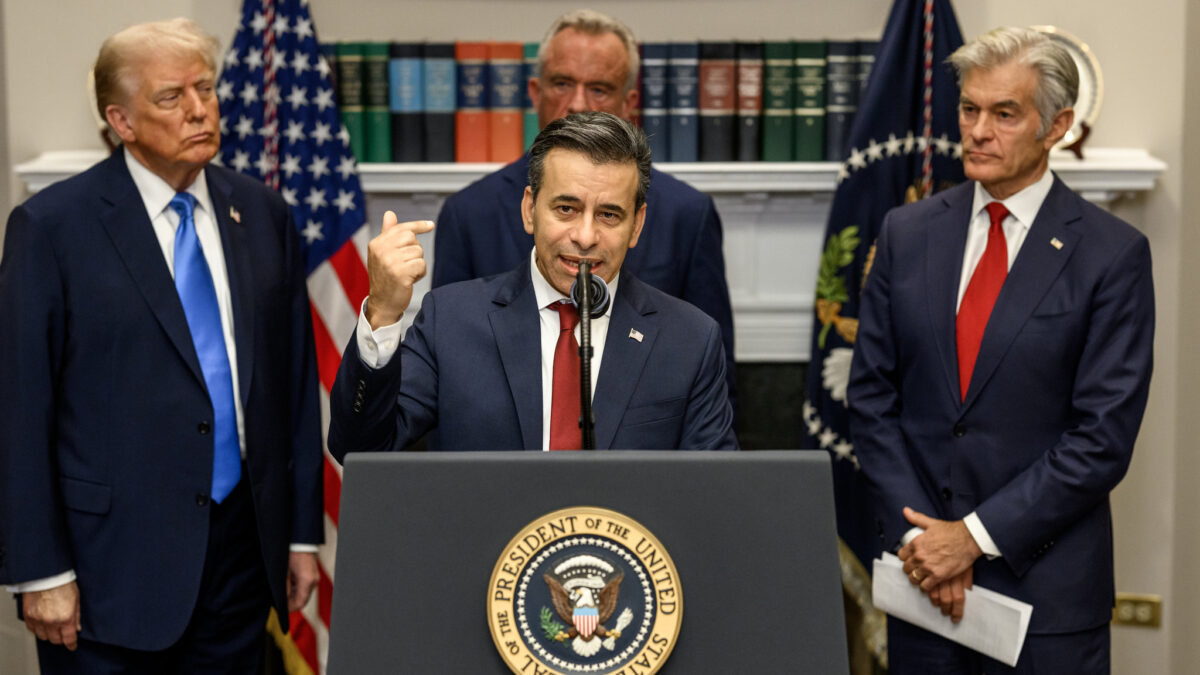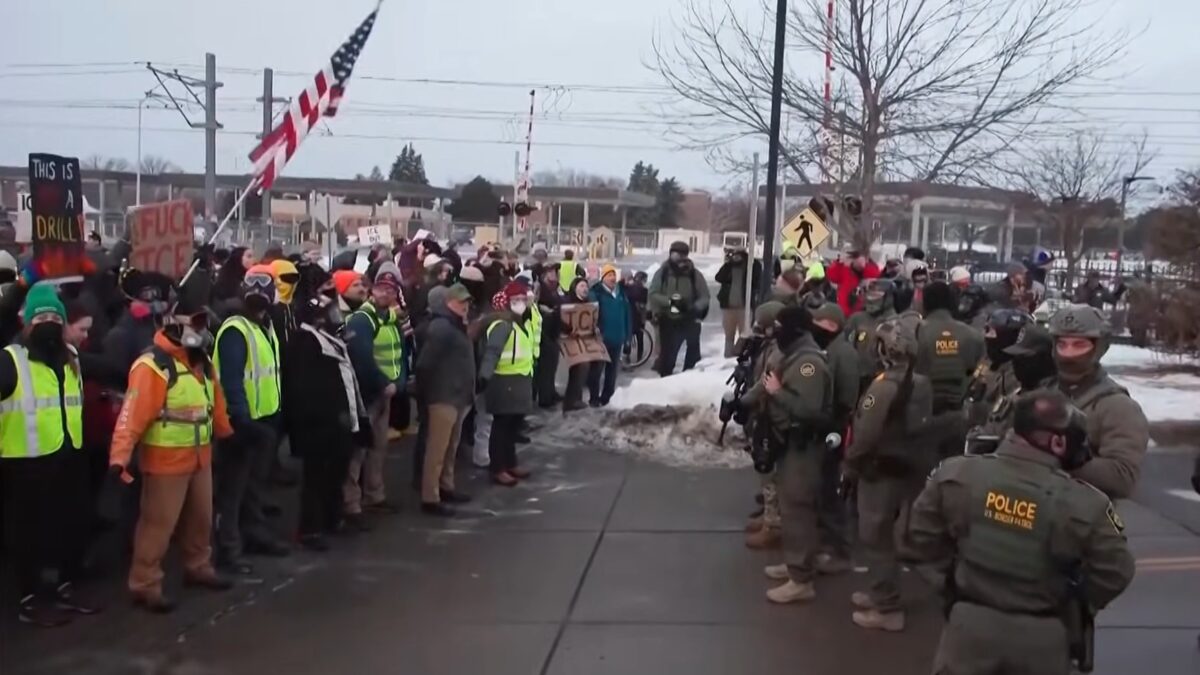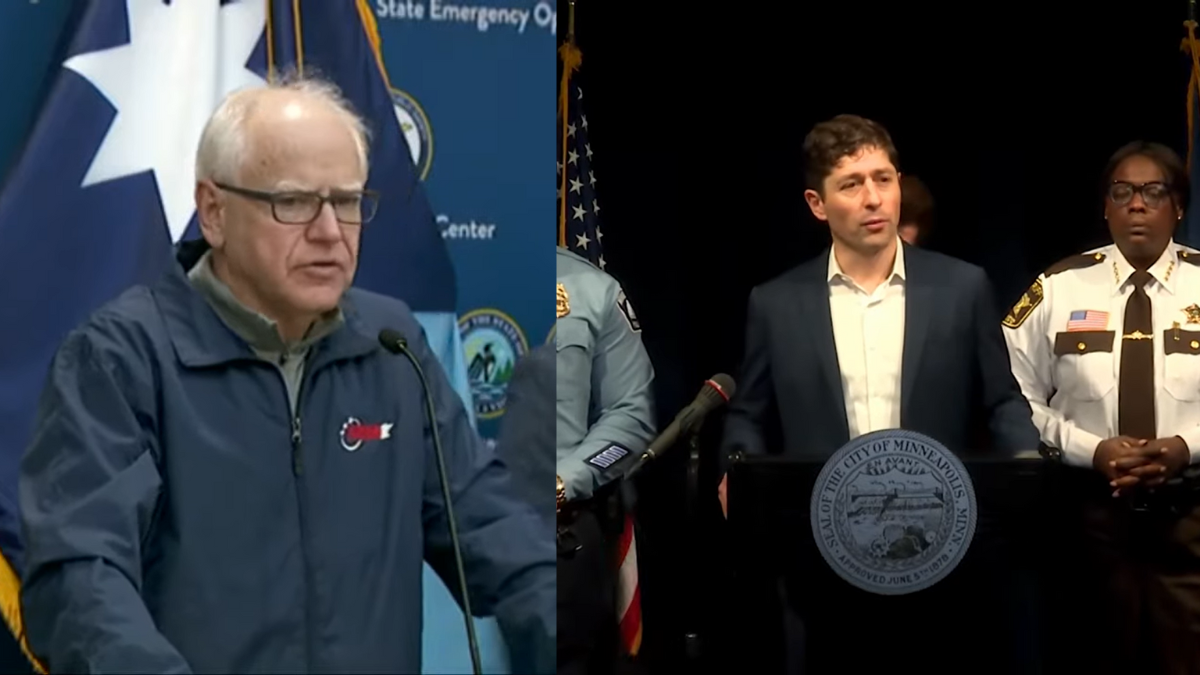
Last week Operation Save America (formerly known as Operation Rescue), conducted a seven-day rally, several hundred strong, in Louisville, Kentucky. The epicenter of the campaign was the last abortion mill in the state: EMW Women’s Surgical Center, a brown brick building on 2nd and West Market, guarding its 20 feet of sidewalk with nearly a dozen “No Trespassing” signs.
Taped out in yellow and black around the EMW entrance, stood a federally-mandated temporary “buffer zone,” prohibiting OSA leaders from nearing the clinic entrance.
In May, Rusty Lee Thomas, director of OSA, along with 10 determined associates, had chosen to sit down in front of EMW, blocking the entrance to the abortion mill and violating FACE for the first time in over a decade. Their prompt arrest for trespassing was followed this month by federal charges for 10 of their number (the eleventh, a 17-year-old girl from Virginia, was excluded).
Last week’s buffer zone was put in place by District Judge David J. Hale, a battle-tested Democrat and Obama nominee, in order to deter any repeat of OSA’s efforts to physically bar entrance to EMW.
The move, however, may have misjudged the nature of OSA’s rally. Sitting in the back of their nightly gatherings at Evangel World Prayer Center last week, it was hard not to notice the numerical preponderance of families with young children—a five-year-old playing with her father’s big beard, a boy, about seven, climbing his little brother’s stroller, a mother in the back nursing her infant child.
Suffice it to say, no attempt was made last week to block entrance to EMW. But other means were used—and are continuing to be used—to make Kentucky the first abortion-free state.
What’s Happening Right Now In Kentucky
Seven states, right now, have only one abortion facility: North Dakota, South Dakota, Missouri, Mississippi, Wyoming, West Virginia—and Kentucky. Activists on both sides of the abortion issue have had their eye on these states for some time, knowing full well that if one of them succeeds in shutting down its last abortionist, the national impact would be enormous.
In the past six months it has become clear that the battle for the first abortion-free state is going to be fought this year in Kentucky.
The reason is mostly a matter of Kentucky’s last two election cycles. In 2015 Matt Bevin was elected governor. Bevin is a strong social conservative with four adopted children in his family of 11, and no hesitation about describing himself as “unapologetically pro-life.” Last year swept in a Republican majority in the state legislature; in the first week of their session (usually used for organizational purposes), it jumped to pass a 20-week abortion ban and an ultrasound requirement.
Matt Bevin called it a “no-brainer” and promptly signed them both.
What is more, in the past two years, Bevin’s administration has dogged abortion mills on regulatory laws to the point that every single mill in Kentucky, except the Louisville EMW, has stopped performing abortions. In fact, if Bevin’s administration had its way, Kentucky would have become abortion-free at the end of March when the Governor ordered EMW to stop performing abortions until it improved its emergency transfer agreements.
Kentucky law does, indeed, require abortion mills to have signed agreements with hospitals and ambulance services to ensure the safety of mothers should something go wrong during an operation. But Bevin’s administration is enforcing this rule rigorously, requiring, among other things, that the hospital be within 20 minutes of the clinic and that the ambulance service be in the same county as the clinic.
This creates real problems for an abortion mill in a state where many hospitals do not want to associate with “healthcare providers” that specialize in the intentional destruction of human life, and others find themselves under “incredible’ outside pressure” (likely from pro-life groups) not to do so.
Stuck in this kind of predicament, EMW ended up suing in federal court, attempting to keep itself open on the argument that it would be unconstitutional for its patients to have to seek care in another state. U.S. Judge Greg Stivers, another Obama appointee, backed EMW up, and temporarily blocked Bevin from enforcing Kentucky law.
What Pro-Lifers Hope To Achieve
It was at this point—with EMW still operating and a stack of Federal lawsuits working their way through the courts—that Operation Save America decided to sit down in front of the brown brick abortion mill at 2nd and West Market Street.
While they had no intention of reviving Operation Rescue, they felt, at the end of much prayer and fasting, that a “line needed to be crossed,” and that the place to step over it was in Kentucky. Thus, they acted, in their capacity as private citizens, with the hope of inspiring Governor Bevin to go toe-to-toe with the federal government on the issue of abortion.
Thomas argues that Matt Bevin ought to “interpose” for Kentucky by rejecting Roe v. Wade outright. “On the federal books, it’s against the law to smoke dope,” director Rusty Thomas told Slate, “But what did Colorado do as a state? They told the federal government go pound sand… And then of course you have other states that love sanctuary cities. That’s against the federal government and the laws on the books.”
The analogy Thomas draws is not altogether accurate. There is a large and important difference between refusing to use state police to enforce federal edicts and actively putting people in jail or quarantining their property in defiance of federal court rulings. The former simply recuses the state from enforcing federal law. Federal agents are still allowed to enforce their will insofar as they can do so on their own. The latter (nullification) must involve a direct conflict between federal and state agents in any instance when both arrive at the same clinic—a recipe for civil war.
But, leaving aside the debate over nullification vs. passive non-cooperation, there is a strong general sentiment in Kentucky that it’s time to begin pushing back against clearly unlawful acts of judicial legislation like Roe v. Wade. Matt Bevin has indicated that he holds a favorable view of interposition in private, and Lieutenant Governor Jenean Hampton has espoused it in public—during an election campaign that ended in a comfortable victory.
This means that the fight to close Kentucky’s last abortion mill is not likely to end when EMW finds a hospital willing to sign or Judge Greg Stivers discovers a penumbra’s emanation in the shadow of the U.S. Constitution which forbids Kentucky to require transfer agreements of abortion mills.
And if the avant garde of the pro-life movement keeps its attention on Kentucky, we could well have our first abortion-free state by 2018.









